- Region
- Águilas
- Alhama de Murcia
- Jumilla
- Lorca
- Los Alcázares
- Mazarrón
- San Javier
-
ALL AREAS & TOWNS
- AREAS
- SOUTH WEST
- MAR MENOR
- MURCIA CITY & CENTRAL
- NORTH & NORTH WEST
- TOWNS
- Abanilla
- Abarán
- Aguilas
- Alamillo
- Alcantarilla
- Aledo
- Alhama de Murcia
- Archena
- Balsicas
- Blanca
- Bolnuevo
- Bullas
- Cañadas del Romero
- Cabo de Palos
- Calasparra
- Camping Bolnuevo
- Campo De Ricote
- Camposol
- Canada De La Lena
- Caravaca de la Cruz
- Cartagena
- Cehegin
- Ceuti
- Cieza
- Condado de Alhama
- Corvera
- Costa Cálida
- Cuevas De Almanzora
- Cuevas de Reyllo
- El Carmoli
- El Mojon
- El Molino (Puerto Lumbreras)
- El Pareton / Cantareros
- El Raso
- El Valle Golf Resort
- Fortuna
- Fuente Alamo
- Hacienda del Alamo Golf Resort
- Hacienda Riquelme Golf Resort
- Isla Plana
- Islas Menores & Mar de Cristal
- Jumilla
- La Azohia
- La Charca
- La Manga Club
- La Manga del Mar Menor
- La Pinilla
- La Puebla
- La Torre
- La Torre Golf Resort
- La Unión
- Las Palas
- Las Ramblas
- Las Ramblas Golf
- Las Torres de Cotillas
- Leiva
- Librilla
- Lo Pagan
- Lo Santiago
- Lorca
- Lorquí
- Los Alcázares
- Los Balcones
- Los Belones
- Los Canovas
- Los Nietos
- Los Perez (Tallante)
- Los Urrutias
- Los Ventorrillos
- Mar De Cristal
- Mar Menor
- Mar Menor Golf Resort
- Mazarrón
- Mazarrón Country Club
- Molina de Segura
- Moratalla
- Mula
- Murcia City
- Murcia Property
- Pareton
- Peraleja Golf Resort
- Perin
- Pilar de la Horadada
- Pinar de Campoverde
- Pinoso
- Playa Honda
- Playa Honda / Playa Paraíso
- Pliego
- Portmán
- Pozo Estrecho
- Puerto de Mazarrón
- Puerto Lumbreras
- Puntas De Calnegre
- Region of Murcia
- Ricote
- Roda Golf Resort
- Roldan
- Roldan and Lo Ferro
- San Javier
- San Pedro del Pinatar
- Santiago de la Ribera
- Sierra Espuña
- Sucina
- Tallante
- Terrazas de la Torre Golf Resort
- Torre Pacheco
- Totana
- What's On Weekly Bulletin
- Yecla


- EDITIONS:
 Spanish News Today
Spanish News Today
 Alicante Today
Alicante Today
 Andalucia Today
Andalucia Today
article_detail
Date Published: 15/01/2022
Spanish News Today Editors Roundup Weekly Bulletin Jan 15
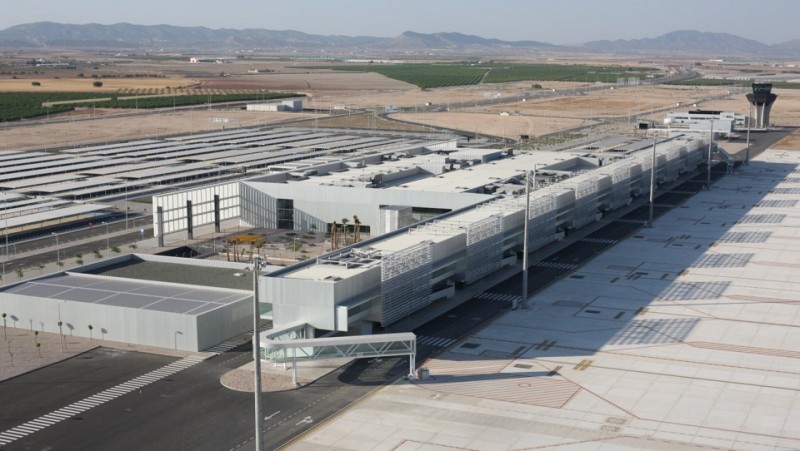
CLICK HERE FOR THE FEATURE ARTICLES "Corvera airport hoping to increase flight destinations in 2022" and "Spain to monitor Covid like the common flu"
This coming Monday is apparently ‘Blue Monday’ – the third Monday of January when moods are at their lowest. New Year’s Resolutions have fallen by the wayside by now, with most of us realising 2022 won’t actually be the year we get that six pack and learn a new language; we’re far enough from the highs of Christmas for the shine to have worn off and the next holidays coming up look a long way away.
And yes, depending on which way you skin it maybe it is a time to be depressed. Covid doesn’t seem to be letting go its grip a full two years on with infection numbers remaining stubbornly high and hospitals are reportedly at breaking point due to the numbers of staff off sick. But there is also cause for joy.
Data across the last 14 days shows the cumulative incidence rate is starting to slow its ascent and even begin to fall in some areas, prompting quiet, barely whispered hopes of the end of this sixth wave of coronavirus in Spain. Or not so quiet, with Spain debating whether to start treating this pandemic like an endemic disease, more like the common flu – “learning to live with the virus”. Meanwhile, taxes are down in some parts, trains are cheaper in others and it’s a good time to go out for a brisk walk in the fresh air and enjoy the winter sunshine, as you’ll find out in this week’s bulletin.
Don’t get me wrong – we’re continuing to take this health crisis seriously, and know that the better informed everyone is about the latest fast-changing developments, the better protected we all are. That’s why, just like in last week’s Roundup Bulletin, we’re addressing Covid-19 issues directly in each of our regional sections below instead of in a separate ‘Coronavirus’ section, so that you can follow the developing Covid situation in each different area of Spain.
We keep endeavouring to bring you the most up-to-date coronavirus news as it comes out, which you can always consult at the following link: https://murciatoday.com/coronavirus_381-tread.html
Scroll down a bit further to read more about Covid and other news in Murcia, Spain, Alicante and Andalucía. But first, tourism and pigs…
Happy campers?
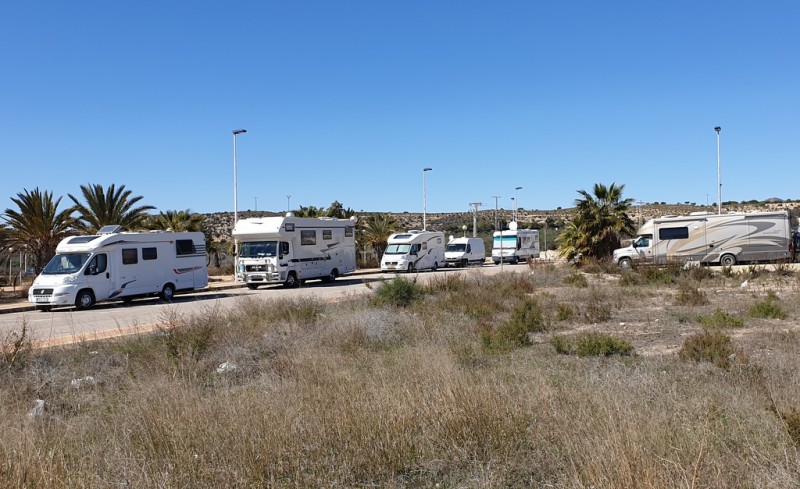
The spell of warm weather over the Christmas holidays had tourists and holidaymakers hopping in their caravans and motorhomes and pootling along to the Murcian coast for a well-deserved break. While the weather has since taken a turn for the wetter, campers were overjoyed to spend their Christmas on the beach, sunning it up in southeast Spain.
Not so much the local residents of the places where they parked up. In Mazarrón, there were complaints of dozens of vehicles parking on the Playa de Percheles beach, a natural area where it is actually illegal to camp. In Águilas, too, the beaches of Los Cocedores, La Carolina and La Higuerica also had hundreds of unwanted visitors.
Reports came through of campervans blocking access routes – which is annoying – and of people hanging their washing out to dry on bushes in the protected natural area, which is more than just annoying because it contributes to the degradation of the indigenous flora and the local environment.
These beaches are areas of natural beauty, where grasses, shrubs and wildlife are supposed to make their home alongside responsible visitors. They are not campsites, and they don’t have the proper services set up to accommodate motorhomes – there are no mass bathrooms or indoor showers, no charging points to plug into and no general waste disposal besides the few small bins normally found on beaches.
Of course, we shouldn’t tar everybody with the same brush. Most caravan users are conscientious and law-abiding, taking care to park where they’re allowed and to leave the place they camp the way they found it. Camping and caravanning are fun activities, and one of the most popular tourist activities in the Murcia Region, bringing in hundreds of thousands of euros in funds each year.
Partly in response to the most recent complaints and partly because this is a recurring problem every year, Mazarrón Town Council has introduced strict new parking rules for caravans and motorhomes. From now on, caravans will not be able to park within 5 kilometres of a caravan park or other authorised camping area, in an effort to reduce the tendency towards free, illegal parking and make them to pay to park in the campsite itself. The new rules also mean motorhomes won’t be allowed to park for free in urban town centres, places or crowded places like beaches and parks, or even within 100 metres of riverbanks or roads, with fines put in place for anyone who breaks these rules.
Hopefully, this will mean tourists and residents alike can enjoy the wealth of beautiful natural parks and beaches that Murcia has to offer, but in a responsible way that doesn’t interfere with the precious environment or get anybody riled up.
Trains, planes and… cruise ships
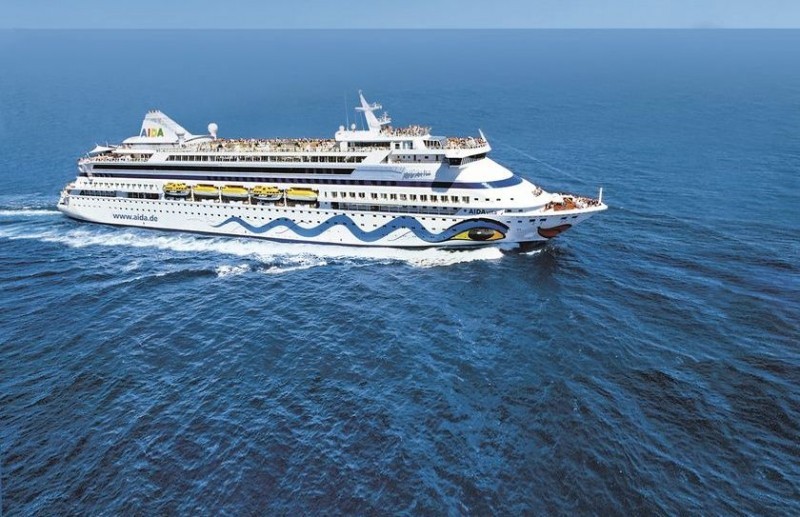
Corvera airport in the Region of Murcia, that poor benighted travel hub that has lost so much custom and seen so few passengers passing through its dusty gates in recent years, is once again hopeful that 2022 will be the year that prospects start to look up.
While all international travel was obviously and understandably affected in 2020, Corvera has been struggling for a long time to maintain flight connections with other European destinations, and even other cities within Spain. Now, though, a cash injection of at least 1.5 million euros is being invested with the hopes of setting up routes between Murcia airport and Porto (Portugal), Norway, Paris and the Spanish city of Santiago de Compostela in 2022.
However, Corvera airport lost its recent flight path to Manchester, at least for this month of January. It was being run by Ryanair, who chose to suspend this route temporarily because it wasn’t profitable. Time will tell whether or not it will be started up again next month or even later towards spring.
There are currently some flights from the airport connecting Murcia with Casablanca and Oujda in Morocco, plus the United Kingdom, Belgium and Las Palmas in the Canary Islands, at least up until March, but the number of routes is still much lower than pre-pandemic levels.
Total passenger traffic through Corvera was 283,436 for 2021, which is 30% more than in 2020, but is actually 74% less than 2019. To put this into context, before the controversial transfer of the airport facilities from San Javier to Corvera, Murcia’s regional airport was processing more than 1 million passengers a year. It will take a miracle for Corvera to be able to get up to that sort of level this year, but all is not lost as the cruise ships keep bringing tourism into the Region…
There are expected to be 30% more cruise liners coming into Cartagena port this year than in 2019, bringing almost 50,000 passengers between January and March alone. Unfortunately for the tourists stepping off the boat, however, restrictions have been put in place in the city that will keep them in so-called ‘bubble groups’ away from the general population.
When they leave the ship, they will have to remain in their assigned group, without wandering off, and will be under the supervision of a group leader from the cruise. They will only be permitted to enter the city to shop or visit museums in pre-organised excursions by the cruise liner operators, and will not be able to wander around the city freely or even have a coffee, beer or lunch by themselves. While provisionally these rules are only supposed to be in force for this month or until this latest wave of Covid subsides, it will have a knock-on effect on the amount of money local businesses can make from the usually lucrative cruises.
Many cruise ships already require a minimum of 95% of passengers to be vaccinated (except for young children and adults who have previously been infected), and they all require passengers to show a negative Covid test before embarking, so why all these new restrictions that penalise both the tourists themselves and the local economy? Yes, it’s good to be wary of this disease and put in place sensible measures against the virus, but this particular rule seems a little out of hand, and probably not too effective at reducing infection rates.
Finally some good news over in Alicante, then, where train operator Renfe is cutting the cost of season tickets by more than a third to compensate for problems with delays, cancellations and the reduction of service caused by Covid.
Specifically, passengers who have a monthly rail pass for the lines running between Alicante-Elche-Orihuela and Alcoy-Xàtiva can now request a refund of 35% of the cost of the ticket between January and April. Well, if you can’t fly away to some exotic destination and you don’t want to take a cruise, then cheap, regular getaways to the beautiful towns and coastal villages in Alicante are a great alternative.
Animal farm
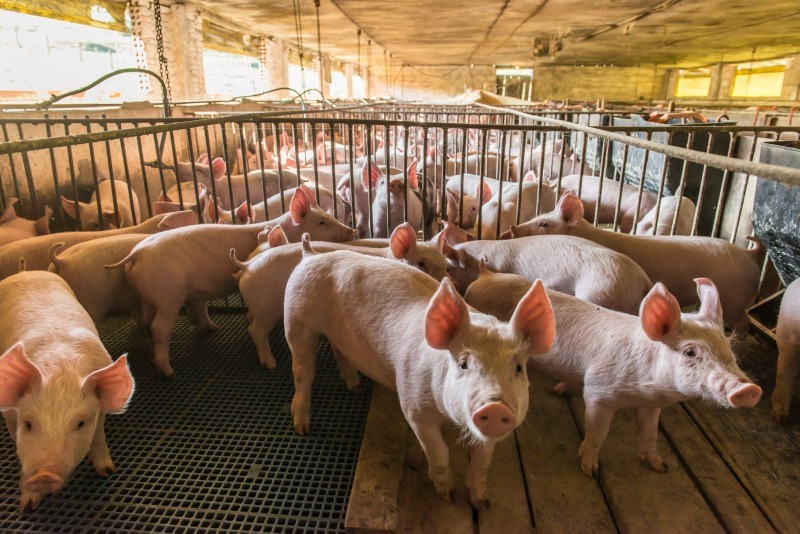
A debate has opened up that is dividing Spain after a certain far-left politician, Alberto Garzón, made comments in an interview with the UK paper The Guardian about the state of Spain’s farms and the environmental impact of intensive animal farming on the country’s waterways and countryside.
It all started back in December when Mr Garzón said that while extensive livestock farming in Spain is ecologically sustainable and has “a lot of weight in certain regions”, industrial “mega-farms [aren’t] at all sustainable” and that “they pollute the soil, they pollute the water and then they export this poor-quality meat from these ill-treated animals.”
It should be noted that there is nothing here that is not purely factual, and in the past this kind of scientifically obvious statement has not received criticism from political parties across the spectrum, nor has it outraged proud, upstanding Spaniards who smell an attack on their country and a criticism that suggests Spain may not be the greatest country on earth.
So what changed this time? Well, what happened is that when Garzón said that factory-farmed meat “is a poorer quality meat, it is also a mistreatment of animals and it has a huge and disproportionate ecological impact”, what the big and powerful industrial meat producers like the Fuentes Group in Murcia heard was a threat to their profit margins. So they started a media campaign (not in their own names, of course) claiming that Mr Garzón had said that ALL Spanish meat was inferior and that people in Spain ought to eat less meat, and they generally whipped up a frenzy against him as a traitor to his country and prompted calls for him to resign.
The slings and arrows of the fortunes of monied and sheltered politicians aside, the real point is that the debate is starting to bring to light the horrendous conditions in which many pigs, cows and chickens live in factory ‘farms’ all over Spain, and the true cost to the environment of such ‘farming’ practices.
Industrial, intensive farms, known in Spanish as macrogranjas, have increasingly been supplanting traditional smallhold farmers for years now, pushing them out of the marketplace thanks to their ability to produce cheap meat. And how do they do it? By cramming the animals in, by feeding them growth hormones, by prioritising quantity over quality – both of the animals’ life and the taste of the meat – and by cutting corners when it comes to moderating the environmental impact of their activities.
Farms with more than 2,000 head of pig or more than 750 breeding sows with piglets are actually already required to be catalogued in the State Register of Pollutant Emissions and Sources (PRTR) because they’re already well-known to authorities as big-time polluters. There are currently around 3,000 of these facilities in Spain, which emitted 96,158 tonnes of methane in 2019 alone – almost half of the total emissions from all pig farming in the country.
Spain is the world’s third largest exporter of pork behind China and the US, and between 2013 and 2019 there were an average of 20,000 more pigs a week in the country’s factory farms. The organic waste, or slurry, produced by all these thousands of pigs trickles down into the subsoil and later gets washed into the waterways, carrying with it high levels of polluting nitrates of the kind that are currently plaguing Murcia’s Mar Menor lagoon.
Whatever your position on the political spectrum, on loudmouth politicians and on meat consumption, the hard science cannot be ignored and nor can we afford any longer to turn away from the sad truth of what we are doing to our local environment. Macrogranjas must be phased out.
Murcia
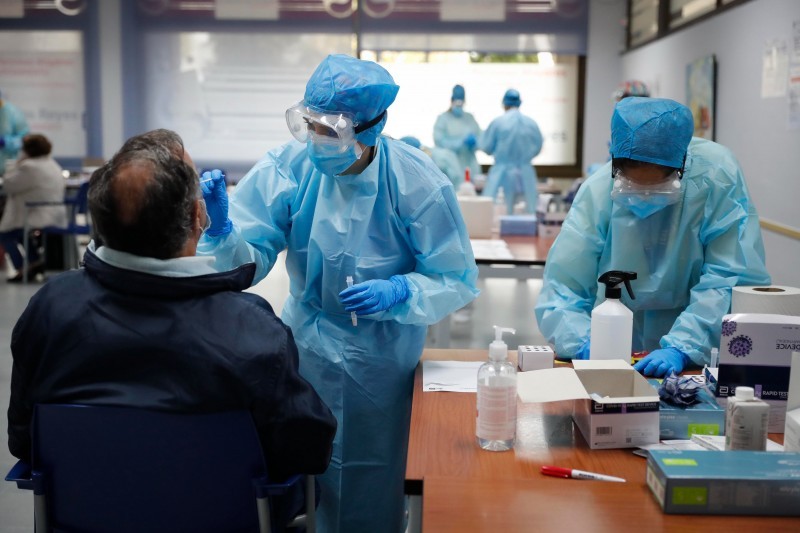
The week started out with drizzly and windy weather conditions across the Region of Murcia, with the grey skies perhaps being a metaphor for the dismal stream of Covid figures and data which have dominated the news headlines.
Rising Covid cases, hospitalisations and fatalities led the authorities to request an extension of the current restrictions and, although experts remain hopeful that the peak of the sixth wave could be on the horizon, the Region of Murcia saw record breaking cases once again this week. Meanwhile, efforts to vaccinate the entire population continue, with booster jab appointments being made available to over 40s this Friday.
Temperatures look set to rise again as of this coming Wednesday, though, and with any luck that too will align with the Region’s Covid fortunes…
In addition to the immediate economic, social and medical effects that the Covid-19 pandemic has caused in Spain, and in the rest of the world, there are now new reports that the virus could have serious long-term repercussions for our planet. A recent study carried out by experts in Cartagena (Murcia) and Cyprus shows how a fear of catching Covid on public transport has resulted in higher CO2 emissions as people used private vehicles more during 2020 and 2021. This of course has a domino effect on climate change and global warming and the worrying data reported in the study coincides with reports that the past seven years have been the hottest since 1850.
See our handy guides for dealing with Covid in Murcia:
- How to obtain a Covid passport in Murcia
- How to renew a Covid passport in Murcia
- Book a Covid vaccine or booster appointment in Murcia
- What should I do if I test positive for Covid-19?
While restaurateurs in Cartagena were left severely disappointed this week after the announcement that cruise ship passengers would have their movements around the city limited to pre-organised trips and excursions, there was good news for the tourism and hospitality sectors as it was announced that bars and restaurants in Cartagena wouldn’t have to pay the dreaded terrace tax this year. San Javier Town Hall has also followed suit and made its bars, cafés and restaurants exempt from paying the tax to put out tables and chairs during the whole of 2022.
Talking of tax, homeowners in Mazarrón will have to pay less property tax (Impuesto sobre Bienes Inmuebles or IBI) in 2022. The Town Council has made the welcome step of reducing this property tax by 3.57% this year in an attempt to revitalise the town’s economy and attract new blood, and a further, even bigger tax reduction is already on the cards for 2023.
A string of break-ins along the Mar Menor coast and Cartagena villages has led to concerned residents forming neighbourhood patrols and demanding a greater police presence to prevent robberies. Criminal groups have been targeting places like Los Urrutias, where a large proportion of properties are used as holiday homes during the summer and left empty for the rest of the year. This allows thieves to steal quite literally everything but the kitchen sink, including pipes and steel doors, without fear of being discovered or making too much noise, but hopefully the neighbourhood watch and the increased attention on such activities will be enough to dissuade would-be robbers in future.
Elsewhere, a young thief was caught red handed after a night-time stealing spree in which he broke into a dozen parked cars in the municipality of Torre Pacheco.
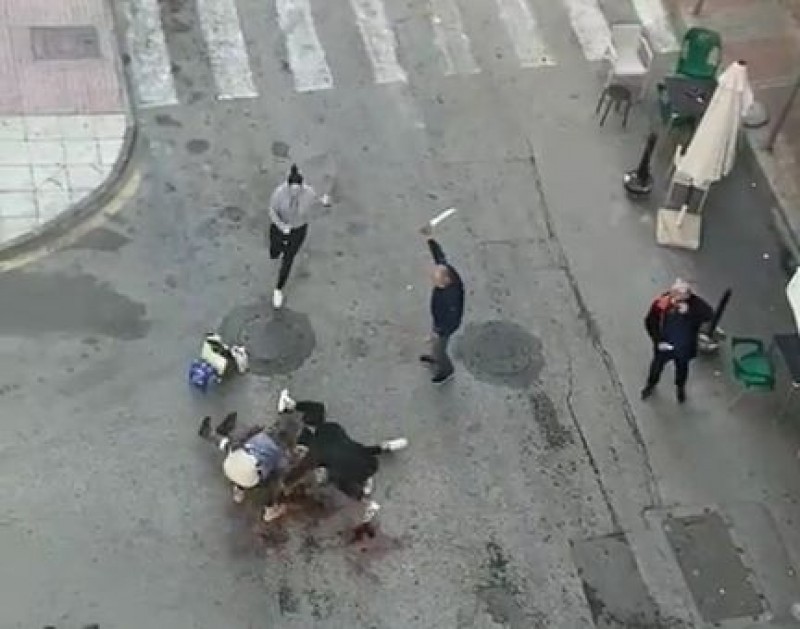 Another, even more serious crime also took place this week in Molina de Segura, where locals filmed a brutal knife attack in broad daylight that made national headlines. The gruesome video, which has been circulating wildly on social media, shows three men brawling in the middle of a road surrounded by a pool of blood. Witnesses and police officers thankfully intervened, but not before the victim was seriously injured and his hand almost hacked off. Watch at your own discretion.
Another, even more serious crime also took place this week in Molina de Segura, where locals filmed a brutal knife attack in broad daylight that made national headlines. The gruesome video, which has been circulating wildly on social media, shows three men brawling in the middle of a road surrounded by a pool of blood. Witnesses and police officers thankfully intervened, but not before the victim was seriously injured and his hand almost hacked off. Watch at your own discretion.Finally, on a lighter note, a high-speed chase going from the outskirts of the El Valle Golf Resort all the way up to Espinardo in Murcia city ended with a surprising find for local police – not drugs, not weapons, but 320kg of (most likely stolen) artichokes. While the seemingly bizarre theft and ensuing dramatic police chase has people tickled pink, the truth is that artichokes are one of the major crops grown by Murcia farmers, and can fetch a pretty penny on the black (or green?) market.
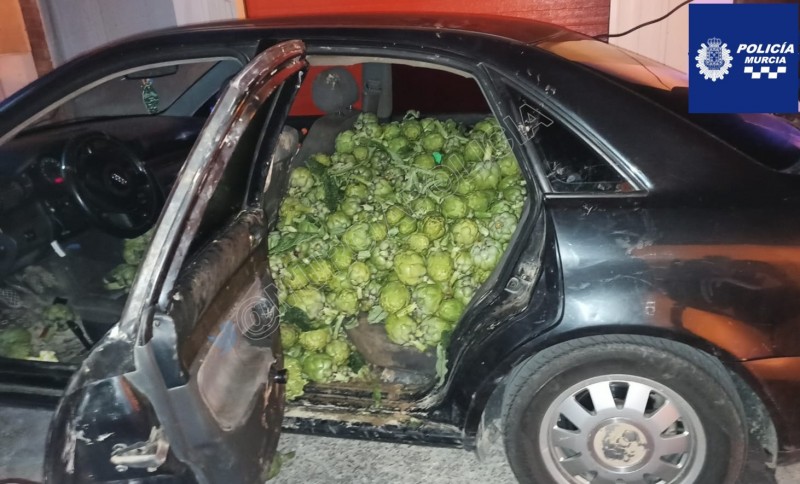
Want to know what’s going on in your local area? CLICK HERE TO CHECK OUT OUR EVENTS DIARY!
Spain
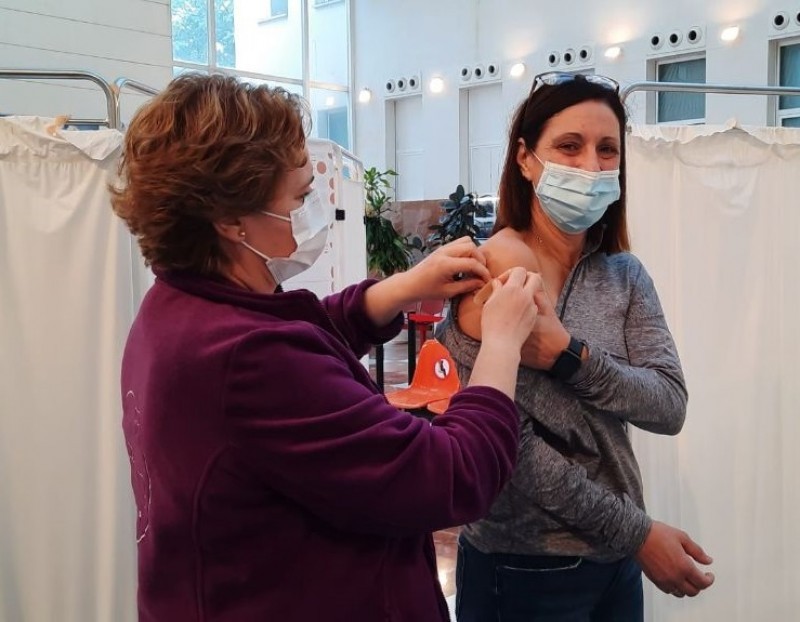 As Spain recovers from the its Christmas festivities, the coronavirus impact of the Yuletide season is still wreaking its havoc on the country. The experts predicted a spike in infections in early January and their fears have borne fruit as the cumulative incidence rate has skyrocketed to 3,156 cases per 100,000 inhabitants and half of the provinces in Spain have ICUs at the very high risk level. Despite Covid cases being three times higher than they were this time last year, however, overall ICU admissions are around 50% lower, a sure sign that the vaccination campaign, which has thus far seen 90.5% of the population double jabbed, is succeeding in preventing more serious illnesses.
As Spain recovers from the its Christmas festivities, the coronavirus impact of the Yuletide season is still wreaking its havoc on the country. The experts predicted a spike in infections in early January and their fears have borne fruit as the cumulative incidence rate has skyrocketed to 3,156 cases per 100,000 inhabitants and half of the provinces in Spain have ICUs at the very high risk level. Despite Covid cases being three times higher than they were this time last year, however, overall ICU admissions are around 50% lower, a sure sign that the vaccination campaign, which has thus far seen 90.5% of the population double jabbed, is succeeding in preventing more serious illnesses.A number of big changes to the vaccine campaign were announced this week, the most significant of which is that booster jabs will now be offered to anyone over the age of 18. The time limit between receiving the Pfizer or AstraZeneca second shot and the third dose has also been reduced from six months to five.
In addition, in an effort to ensure that Covid tests remain affordable, the government has capped the maximum price for over-the-counter antigen tests at 2.94 euros, after the at-home kits soared to as much as twelve euros due to increased demand over the holidays. What the Spanish government won’t budge on, however, is only allowing these rapid tests to be sold in pharmacies. In countries like France and Germany, the kits are available in supermarkets, something which has helped to keep the price down and maintain widespread availability, while in the UK they’re available for free.
While the experts believe Spain is fast approaching the peak of the sixth wave, a major blunder in Cyprus this week threatened to put the kibosh on the whole situation, as scientists announced they had discovered yet another Covid strain in 25 patients. Nicknamed Deltacron, the Cypriot government claimed that the disease was a co-infection of both Omicron and Delta. Fortunately, the novel strain was quickly discredited by leading health authorities around the globe, who established that the ‘variant’ was nothing more than a lab mix-up.
Meanwhile, Spain and Europe continue to battle it out over whether the Covid pandemic should be downgraded to an endemic disease and monitored less strictly as is done with other infections such as the flu. Spanish President Pedro Sánchez is adamant that it is no longer practical to carry out this level of testing, which is saturating the primary care sector, but the WHO is insisting that it is far too early to let our guard down.
The European Medicines Agency is also kicking up a fuss about countries advocating for a fourth Covid jab, claiming that there is no proof an extra vaccine provides additional protection and, what’s more, could actually ‘saturate’ the immune system.
This debate may all become moot in the near future however, as Pfizer is steaming ahead with its development of a bespoke Omicron vaccine, set to hit the shelves in March. Even more impressive is the claim by Japanese pharmaceutical company Nobelpharma that they have developed a ‘dream’ coronavirus vaccine that only has to be taken once and doesn’t need a booster. This will certainly come in handy if the WHO’s prediction that half of Europe will be infected with Omicron within a few weeks comes true.
We’ve also got a couple of handy guides for dealing with Covid in the rest of Spain:
- How to book an appointment for a Covid vaccine or booster shot in Spain
- How to obtain a Covid passport
While the news was certainly Covid-heavy this week, interesting things have also been happening in the world of driving as Spain prepares to welcome a raft of new motoring laws later this year. While most drivers know that the penalty for using a mobile phone while driving has been increased, officials have decided to take an even tougher line and plan to impose the same penalties for motorists caught touching any devices, even when they are secured by a hands-free kit. This means that drivers using their phones as a GPS can’t enter or change the navigation settings while the car is moving, unless they want to suffer some hefty consequences.
Alicante
The sixth wave of the pandemic continues to run rampant and with the presence of the highly infectious Omicron variant – which now accounts for 60% of cases – the region peaked with a staggering 29,347 new positives last weekend, smashing a previous record set days earlier.
The post-Christmas spike saw the 14-day-cumulative incidence rate spiral in Alicante province in particular, which on Monday January 10 had skyrocketed to 1,763 cases per 100,000 people – the highest since the start of the pandemic. Alcoy health department, meanwhile, continues holding its dubious honour of being in the lead, with a rate above 2,800 and adding more than 1,200 new cases since the end of the previous week.
The upward trajectory of cases in Alicante has forced hospitals to suspend urgent operations due to a rise in the number of patients hospitalised with Covid. The situation has been exacerbated by an increase in sick leave amongst medical and nursing staff due to Covid, which sources claim has prevented newly designated areas from being opened up to admit the most seriously ill patients as has been done in other waves of the pandemic.
In a bid to halt the flood of new cases with the reopening of classrooms after the Christmas break, a series of anti-Covid measures have been implemented in schools whilst the Ministry of Health announced other restrictions will remain in place until December 31.
The Ministry also began sending the results of coronavirus diagnostic tests carried out in Primary Care and centralised locations by text this week to speed up response times and relieve overcrowded health centres. In addition to notifying people on whether the test is positive or not, the SMS includes a link attached to a web page with instructions from the National Health System Strategy protocol on the measures to be carried out by both infected people and their close contacts.
Meanwhile, health workers in Alicante this week set a legal precedent in Spain by winning a compensation claim over a lack of Covid protection during the first wave of the pandemic. An Alicante court ruled that the Valencia Region’s Ministry of Health put the safety of doctors and other medical staff at “serious risk” by failing to provide them with “sufficient measures and means of protection”.
Whilst many industries are still reliant on subsidies and assistance to recover from the pandemic, including a further freeze on the terrace tax in Alicante, the real estate sector in the Marina Alta area of Alicante province is booming.
The region has experienced an ongoing property sales boom over the last eight months, in spite of the pandemic, and has registered the highest number of sales and purchases since 2007 when the “property bubble burst”.
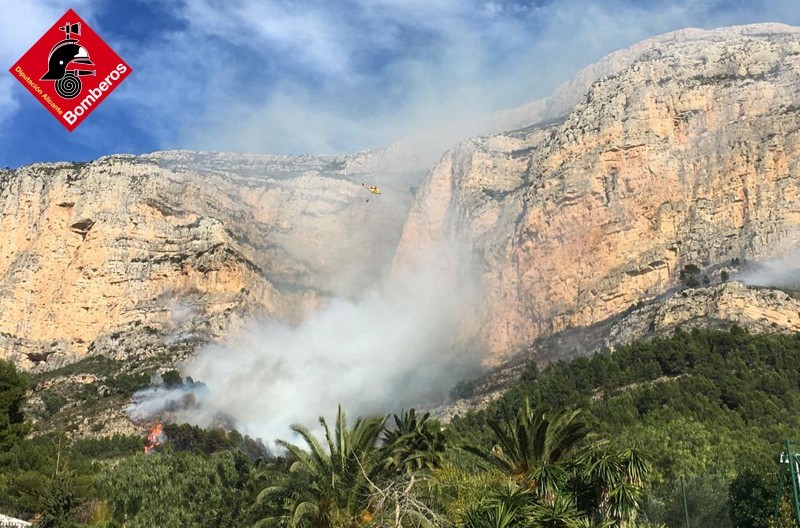 Staying in the Marina Alta, a wildfire razed more than eight hectares of forest in the Barranc del Migdia area of Montgo natural park in Javea. The blaze broke out at around 12.30pm on Monday January 10, and, fuelled by strong winds, took more than five hours to bring under control. Efforts were hampered further by the fact the area was inaccessible by land and firefighters could only get to the site by air. Fortunately, it was not necessary to carry out any evacuations, but Alicante Province Fire Consortium declared a ‘Situation 1’ emergency due to the proximity of houses to the fire.
Staying in the Marina Alta, a wildfire razed more than eight hectares of forest in the Barranc del Migdia area of Montgo natural park in Javea. The blaze broke out at around 12.30pm on Monday January 10, and, fuelled by strong winds, took more than five hours to bring under control. Efforts were hampered further by the fact the area was inaccessible by land and firefighters could only get to the site by air. Fortunately, it was not necessary to carry out any evacuations, but Alicante Province Fire Consortium declared a ‘Situation 1’ emergency due to the proximity of houses to the fire.Three days earlier, there were fears a house fire on the other side of the natural park located in Denia could spread to nearby properties and vegetation. Firefighters acted quickly and, although smoke and flames caused extensive damage to the property, the fire was contained within 45 minutes.
On a bizarre note, an elderly expat was captured on video driving for 35km along the AP-7 in Alicante… in the wrong direction! Police investigating footage of the hair-raising incident, recorded by another driver, eventually identified the motorist as a 75-year-old German woman from the Valencia town of Oliva, who now faces a charge of reckless driving.
Andalucía
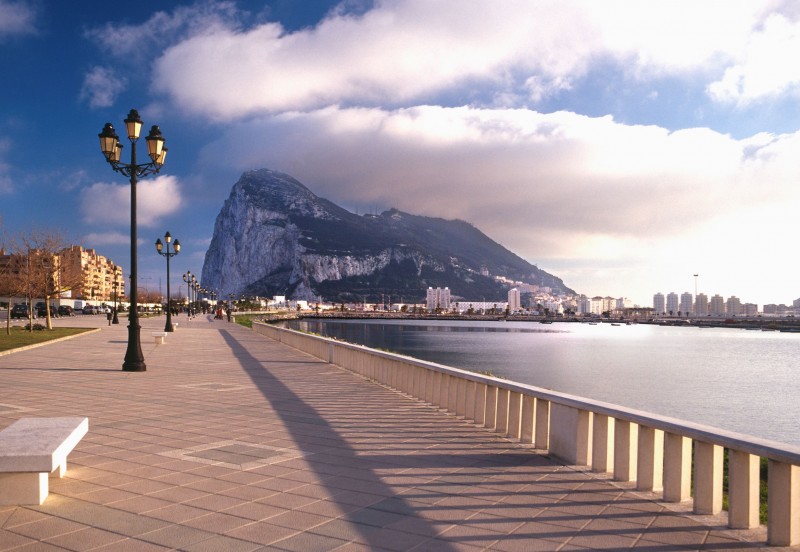 Coronavirus infections in Andalucía are remaining steady, with around 11,000-14,000 more people becoming infected each day, on average, while fatalities sadly rose throughout this week to around 30 each day. At the same time, though, the cumulative incidence rate, which measures how many people per 100,000 have the disease across the last two-week period, is actually going down.
Coronavirus infections in Andalucía are remaining steady, with around 11,000-14,000 more people becoming infected each day, on average, while fatalities sadly rose throughout this week to around 30 each day. At the same time, though, the cumulative incidence rate, which measures how many people per 100,000 have the disease across the last two-week period, is actually going down.At the latest count, on Friday January 14, the incidence rate stood at 1,454.4 cases per 100,000 inhabitants, down from 1,647.1 at the beginning of the week and half the national average. This is fantastic news as it may be a signal that Andalucía is at the beginning of the end of this sixth wave, being about to reach or have already reached the peak. There are hopes that infection numbers, hospitalisations and fatalities will all follow suit next week or the week after and begin to drop in a similarly dramatic fashion. The continuing march of the vaccination programme, as well as the reduced rate of mortality and less serious symptoms related with the much more prevalent Omicron variant, is credited with the positive figures in the region.
Nonetheless, the dangers for hospitals faced by the rest of the country are affecting Andalucía too. Although the percentage of people admitted to hospital with Covid as a total of all hospitalisations is lower in Andalucía than in Spain as a whole, and the ICU occupancy by Covid-19 patients in Andalusian hospitals is about half the national average, (12.53% in Andalucía versus 23.5% for Spain), there are still pressures on hospitals as doctors and nurses fall sick with the virus and cannot work.
In Málaga, 301 health workers were diagnosed with Covid across just two weeks at the end of December. With fewer professionals available to carry out all the necessary daily activities and cover sick leave, the health service is really feeling the strain.
Over on the rock of Gibraltar off Spain’s southern coast with Andalucía, the Gibraltar Money Laundering Investigation Unit has reported that almost 2.4 million euros have been seized from the proceeds of organised crime over the last five years.
It turns out that drug traffickers smuggling from Morocco to Spain are fond of using Gibraltar as a place to launder their ill-gotten gains, knowing that if they commit a crime in one country and launder their money in another, it is far trickier for security forces to get hold of their cash. And it wasn’t only money that was confiscated by the Gibraltarian authorities, but also luxury apartments and yachts.
However, Chief Inspector Tunbridge of the Economic Crimes Unit, who has been heading up investigations, has said that Brexit has made it harder to share crucial information with Spain on this issue and that they no longer have direct access to the European Investigation Order to help them gather evidence for cross-border cases. Despite good relations between the Spanish and UK forces generally, the political realities of Brexit have actually contributed to making it harder to catch criminals.
From the super-rich to the ultra-poor, a project to build a much-needed homeless shelter in a Seville business park has been stymied due to pressure from local business owners and residents. The city of Sevilla already has one homeless shelter, La Macarena, which helps to house many vulnerable people, but it is working at capacity and the city sorely needs another place where the homeless can go to sleep and get assistance when they need it.
Now, though, the new shelter planned for the Hytasa industrial estate, which was to take the heat off of the existing La Macarena centre, will not go ahead as builders have pulled the plug on the entire project. Part of the reason is that concerns were raised about the facility’s proximity to the Toribio de Velasco infant school, in what amounts to a callous judgement of the homeless as dangerous and a menace to children simply because they don’t have the means to support themselves in stable housing conditions. The mayor has insisted that another location for the shelter will be found, and that the city’s most vulnerable will have the aid and services they deserve.
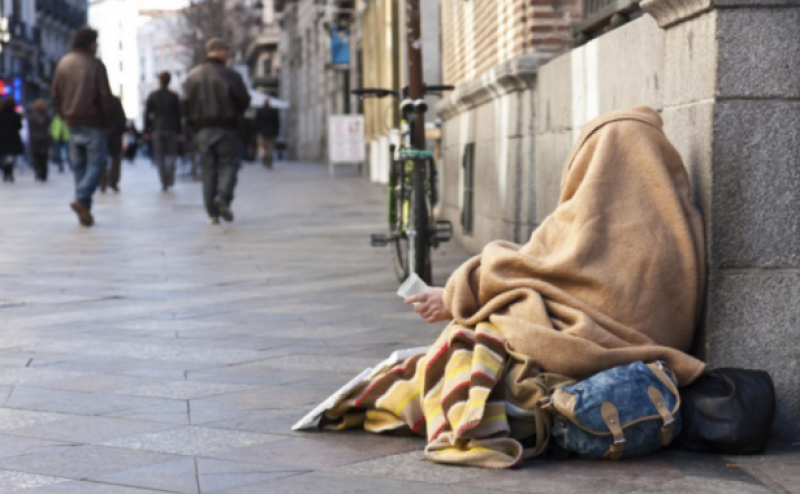
You may have missed…
If you get an email purporting to be from Correos and asking you to enter your credit card details, DON’T DO IT!
3. Car ends up perched precariously on a bench after a bizarre turn of events at a cemetery in Elche.
This incredible image defies belief – honestly, how did that car even get up there?!
An Alicante lawyer has been arrested for a large-scale real estate scam which saw 13 victims lose their homes across the province.
A device to help limit drivers’ speed on the road will soon be installed in all new cars in Spain.
And that’s all for this week! Thanks for reading, and if you liked this roundup, be sure to TELL A FRIEND about it, or better yet share this link with them: https://murciatoday.com/weekly_bulletin.html
See you next week!
Got a business in Spain? Advertise with us.
Murciatoday.com and its affiliated Spain Today Online sites can help bring your business to a wider audience – over 350,000 unique readers every month. We’ll provide you with custom-made banner ads, a personalised listing in our Business Directory and special feature articles about your particular business niche.
Don’t limit yourself to the yellow pages. Get online! After Covid, can you afford not to? Contact us today to find out how we can get wider exposure for your business.
Find more information by AREA, TOWN or URBANISATION .....
Cabo de Palos
Cartagena
El Carmoli
Islas Menores and Mar de Cristal
La Manga Club
La Manga del Mar Menor
La Puebla
La Torre Golf Resort
La Union
Los Alcazares
Los Belones
Los Nietos
Los Urrutias
Mar Menor Golf Resort
Pilar de la Horadada
Playa Honda / Playa Paraiso
Portman
Roldan and Lo Ferro
San Javier
San Pedro del Pinatar
Santa Rosalia Lake and Life resort
Terrazas de la Torre Golf Resort
Torre Pacheco
Cartagena
El Carmoli
Islas Menores and Mar de Cristal
La Manga Club
La Manga del Mar Menor
La Puebla
La Torre Golf Resort
La Union
Los Alcazares
Los Belones
Los Nietos
Los Urrutias
Mar Menor Golf Resort
Pilar de la Horadada
Playa Honda / Playa Paraiso
Portman
Roldan and Lo Ferro
San Javier
San Pedro del Pinatar
Santa Rosalia Lake and Life resort
Terrazas de la Torre Golf Resort
Torre Pacheco
Aguilas
Aledo
Alhama de Murcia
Bolnuevo
Camposol
Condado de Alhama
Fuente Alamo
Hacienda del Alamo Golf Resort
Lorca
Mazarron
Puerto de Mazarron
Puerto Lumbreras
Sierra Espuna
Totana
Aledo
Alhama de Murcia
Bolnuevo
Camposol
Condado de Alhama
Fuente Alamo
Hacienda del Alamo Golf Resort
Lorca
Mazarron
Puerto de Mazarron
Puerto Lumbreras
Sierra Espuna
Totana
Abanilla
Abaran
Alcantarilla
Archena
Blanca
Corvera
El Valle Golf Resort
Hacienda Riquelme Golf Resort
Lorqui
Molina de Segura
Mosa Trajectum
Murcia City
Peraleja Golf Resort
Ricote
Sucina
Abaran
Alcantarilla
Archena
Blanca
Corvera
El Valle Golf Resort
Hacienda Riquelme Golf Resort
Lorqui
Molina de Segura
Mosa Trajectum
Murcia City
Peraleja Golf Resort
Ricote
Sucina
Urbanisations
CamposolCondado de Alhama
El Valle Golf Resort
Hacienda del Alamo Golf Resort
Hacienda Riquelme Golf Resort
Islas Menores and Mar de Cristal
La Manga Club
La Torre Golf Resort
Mar Menor Golf Resort
Mazarron Country Club
Mosa Trajectum
Peraleja Golf Resort
Santa Rosalia Lake and Life resort
Terrazas de la Torre Golf Resort
La Zenia
Lomas de Cabo Roig

Important Topics:
CAMPOSOL TODAY Whats OnCartagena SpainCoronavirusCorvera Airport MurciaMurcia Gota Fria 2019Murcia property news generic threadWeekly Bulletin
CAMPOSOL TODAY Whats OnCartagena SpainCoronavirusCorvera Airport MurciaMurcia Gota Fria 2019Murcia property news generic threadWeekly Bulletin
Contact Murcia Today: Editorial 000 000 000 /
Office 000 000 000





















